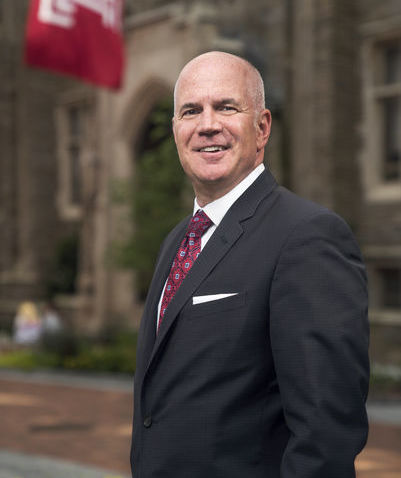
Studies continue to establish the medical benefits of bariatric surgery: Beyond helping persons with clinically severe obesity to lose pounds to look and feel better, bariatric procedures can result in lowered risk of obesity-linked issues including type 2 diabetes, hypertension, heart problems, and premature death.
But bariatric surgery faces an obstacle that many other medically beneficial procedures don’t. There’s a bias—across society and even within the medical community—against accepting obesity as a chronic disease, as many chalk it up to poor lifestyle choices and eating habits. Those beliefs can stigmatize potentially life-changing surgical interventions; it’s been estimated that just 1 percent of candidates for bariatric surgery have a procedure done.
And because bariatric surgery may still be considered cosmetic, despite its medical benefits, “bariatric surgeons are often marginalized by the surgical community,” says David Sarwer, associate dean for research and director of the Center for Obesity Research and Education.
In 2017, the American College of Surgeons, an education and advocacy group serving 82,000 members, sponsored a working group of surgeons and specialists in bariatric surgery to help the broader surgical community appreciate the medical benefits of the procedures. The bariatric panel convened for a 2017 symposium and has been publishing monthly educational papers on topics that emerged from those meetings throughout 2019 in the Bulletin of the American College of Surgeons. The goal of these reports is to highlight the latest advances in the field for the wider surgical community and change perceptions about the procedures. Sarwer is the only psychologist selected to join the ACS’s bariatric panel.
“It’s really a strong statement that the surgeon thought leaders in the bariatric world recognize the importance of the psychosocial and behavioral issue in patients and the important role they play in long-term success,” he says.
Psychological issues are a key part of the conversation on bariatric surgery, which Sarwer highlighted when commenting in a recent New York Times article covering a study of bariatric surgery among teenagers with obesity. As socially traumatic as it can be to be overweight in high-school, the potential of life-changing surgery to treat it often is overlooked, he told the paper.
Unlike many other surgical procedures, he says, bariatric surgery requires extensive pre- and post-operative support and involves needs that go beyond the operating table. As advancements in bariatric medicine continue, society’s attitudes toward persons with obesity need to evolve. Studies have shown bias against patients with obesity even among healthcare providers, and doctors may overlook serious issues, attributing a patient’s complaints to excess weight.
“Most physicians are more likely to say ‘Go on Weight Watchers, go on Jenny Craig, eat less and exercise more,’ rather than recommend bariatric surgery,” Sarwer says. “We need to advocate for greater use of the most effective treatment we have for obesity.”
Learn about the Center for Obesity Research and Education.
Posted: June 3, 2019
